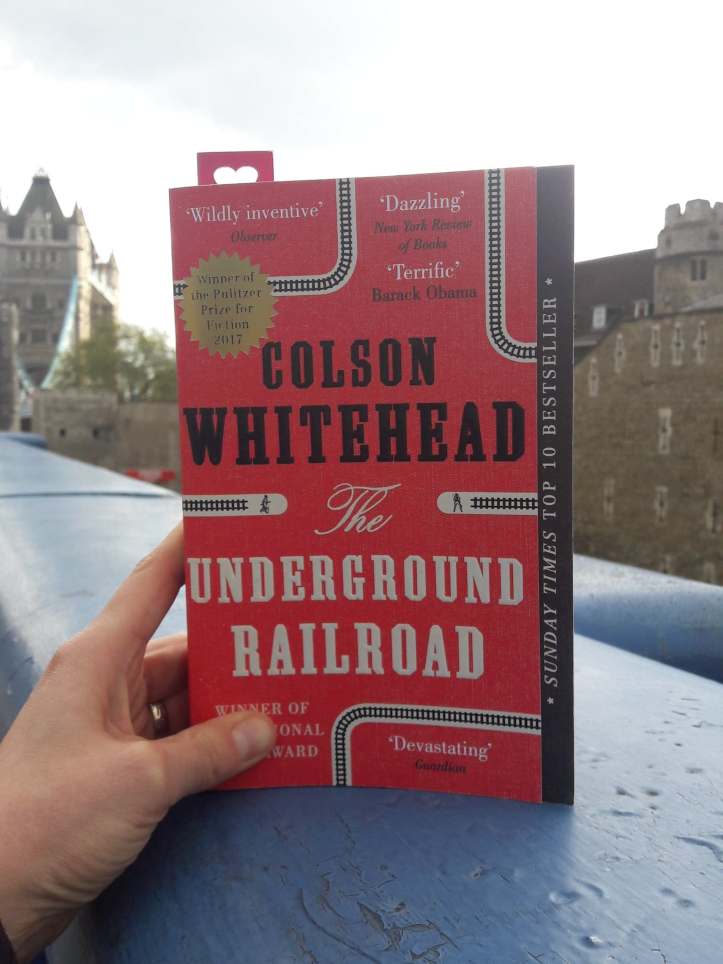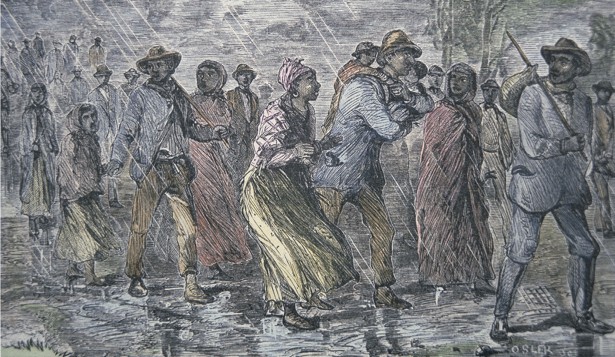
Originally published: 2016
Author: Colson Whitehead
Set in: Georgia, USA
Genre: Historical Fiction
Page count: 366
Reading dates: 1-7 May 2018
Star Rating: 5/5
“Cora didn’t know what optimistic meant. She asked the other girls that night if they were familiar with the word. None of them had heard it before. She decided that it meant trying.”
I always knew this would be good but I also knew it’d be a hard read so this book sat on my shelves for a while before I picked it up.
Set in pre-civil war America, the story centres around Cora, a girl in her late teens who was born on a cotton plantation in Georgia. After a particularly horrific beating, Cora is persuaded to escape the plantation with Caesar, a slave recently arrived from Virginia. He tells her about the Underground Railroad, a way for slaves to escape from their tyrannous owners.
Despite being based around Cora, we also have chapters told from the point of view of other characters including Ridgeway, a relentless slave catcher who is sent to bring back Cora and Caesar, the people who help them along the way and also Cora’s mother who escaped the plantation herself, leaving Cora behind at the age of 11.
The cleverness in this book is that the Underground Railroad has assumed a physical form – actual stations built under sympathetic peoples houses, and tunnels and trains that travel through them taking escaped slaves to safety (or as safe as they’ll ever be).
This book is a brutal read – everything about how the slaves, black people and their sympathisers were treated was horrific. Winner of the Pulitzer Prize for Fiction in 2017, it’s important to read books like this though so we don’t forget the darker periods of our history.
The Real Underground Railroad
The Underground Railroad was a network of secret routes and safe houses established in the United States during the early to mid-19th century, and used by African-American slaves to escape into free states and Canada with the aid of abolitionists and allies who were sympathetic to their cause.
The network now generally known as the Underground Railroad was formed in the late 1700s, ran north to the free states and Canada, and reached its height between 1850 and 1860. One estimate suggests that by 1850, 100,000 slaves had escaped via the “Railroad”.
British North America (present-day Canada), where slavery was prohibited, was a popular destination, as its long border gave many points of access. Most former slaves settled in Ontario. More than 30,000 people were said to have escaped there via the network during its 20-year peak period, although U.S. Census figures account for only 6,000. Numerous fugitives’ stories are documented in the 1872 book The Underground Railroad Records by William Still, an abolitionist who then headed the Philadelphia Vigilance Committee.

Great review.
LikeLiked by 1 person
This is an excellent review Clair!
LikeLiked by 1 person
Thank you! That means a lot x
LikeLiked by 1 person
Great review! This has been sitting on my shelves for ages, I really need to get round to it. 🤔
LikeLiked by 1 person
It had been hanging around mine a while too. Bump it up that list!
LikeLiked by 1 person
Done! 😉
LikeLike
[…] 4 3 2 1 by Paul Auster Days Without End by Sebastian Barry History of Wolves by Emily Fridlund Exit West by Mohsin Hamid Solar Bones by Mike McCormack Reservoir 13 by Jon McGregor Elmet by Fiona Mozley The Ministry Of Utmost Happiness by Arundhati Roy Lincoln in the Bardo by George Saunders Home Fire by Kamila Shamsie Autumn by Ali Smith Swing Time by Zadie Smith The Underground Railroad by Colson Whitehead […]
LikeLike
[…] UK – and I’ve really loved some of the previous winners, including Station Eleven and The Underground Railroad. I think it would make a great Netflix series, which I would watch if it ever got made. I just […]
LikeLike
[…] Conjure Women and would recommend this if you’ve read and enjoyed Homegoing by Yaa Gyasi and The Underground Railroad by Colson […]
LikeLike
[…] of which I knew little – I have read a few books based around slavery (Conjure Women and The Underground Railroad are two that come to mind) but I was still shocked by some of what I learnt here. My knowledge of […]
LikeLike